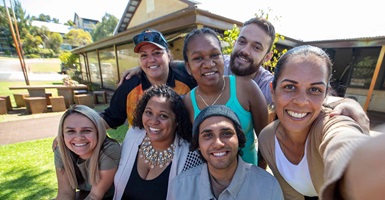There’s no set emotional response to your children leaving home: you might experience a sense of grief, or you may lean towards feelings of relief.
But regardless of how it hits you when your children fly the coop, there will be an inevitable gap that you may find yourself needing to fill.
The phenomenon – and emotional response – has even been given a name: empty nest syndrome. Bandied about in popular culture, overused in the media and increasingly a part of coffee-table conversation, empty nest syndrome is often associated with grief, loneliness and a loss of a sense of purpose.
However, far from the negative connotations empty nest syndrome tends to have Chisholm business teacher Shereen Cassim views this stage of a parent’s life as an opportunity to focus on their own self development.
She believes the challenge of being an empty nester comes when parents are faced with one key question: “How do I find my passion again?”
Strategies for dealing with empty nest syndrome vary. Some parents take the opportunity to travel overseas for the first time or pick up a new hobby, while others might choose to volunteer within the community. However, Shereen finds a large cohort of the students in her business classes are empty nesters that have chosen to return to study.
“Many of my students have decided to come back and learn,” she says. “The driving force behind them coming back to study would be to take up some of the time that they now have on their hands.”
However, Shereen maintains that returning to study isn’t just about filling a gap in the schedule. “I think often people return to study because of a passion,” she says.
“It could be that it’s a passion to continue learning. Not just learning for the sake of getting a job or becoming better at what you’re doing, but also learning about the world and learning about new interests.”
So, the question becomes, ‘What should I study?’ When it comes to picking a course, Shereen recommends taking some time to consider what the benefits will be. Are you looking to advance your career, begin a new business, or pursue something that you enjoy? “The majority of students seem to prefer or have a preference for the type of subjects that they enjoy the most,” she says.
Along with researching the course content, considering the course entry criteria and costs of study, Shereen suggests potential students consider how the course will impact their own personal development. Overall, she suggests empty nesters pursue what makes them happy. “It’s a very personal decision.”


